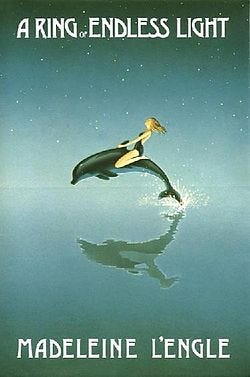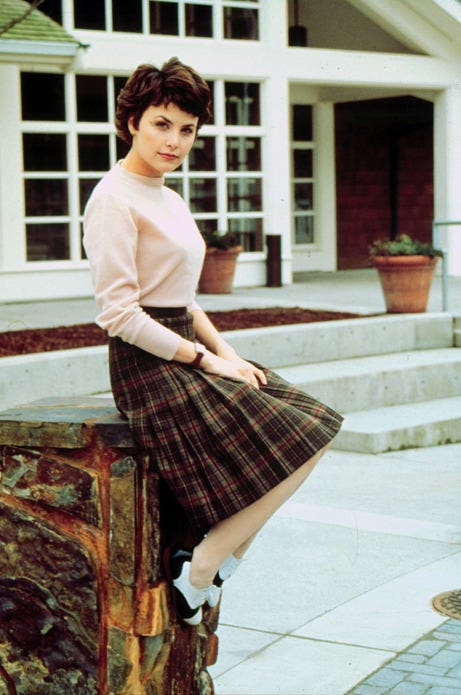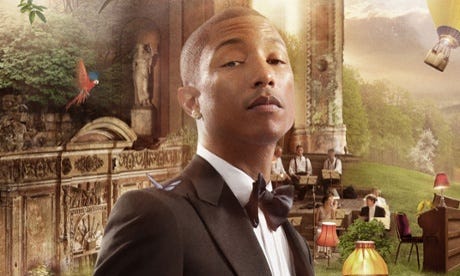So What, Who Cares (vol 1, issue 30) Why showing your vacation snapshots is never a good idea
You readers are the best, part 2 of an ongoing series: As of this morning, I had 195 people subbed to this newsletter, and I thought, "So close to 200," then tweeted about it. All these superstars RT'd my desire to boost my subs past 200: @Nerddothis, @HarBixNY, @erichadickes, @dannyo152, @JennieCal, @Urjoking, @GlennF, @katiemoog, @jennb, @ahakim, @FredKiesche, @Sundry, @flargh, @stevelibrarian and @meghanbkelly.
And now there are 246 of you So What, Who Cares? readers. Welcome! I hope you find this four-days-weekly wrap valuable. Feel free to romp in the archives for an idea of how this goes.
*
By now, the idea that "experiences bring you more happiness than possessions" has moved past "This sounds so crazy, it just might be true" news coverage and into conventional wisdom. A new article points out that anticipating the experience you're paying for can increase your happiness even more, because we tend to wrap those experiences in an "idealized state" in our memories. We don't get the same happiness boost from anticipating a big purchase, mostly because the hard physical presence of that item prevents us from idealizing it. We look at our new iPhone, we watch the battery drain in a day, and we're in the horrible, factual present.

On the other hand, argue a few psychologists, having that once-in-a-lifetime opportunity may leave you feeling isolated and depressed once you return from communing with the dolphins in Maui and realize that your loved ones want to cram your travelogue straight in your blowhole.
The psychologists attribute this effect to a very human condition: wrestling with two contradictory desires. In this case, the desires are: A. to have a happiness-maximizing experience that makes you feel engaged in the wider world and B. to belong and relate to other people with shared frames of reference.
So what? As alluded to above, the maxim that happiness can be bought via experiences is endemic. By figuring out what, specifically, makes us happy in the chain of events from "I want to arrange an experience" to "I am paying for this experience" to "I had an experience," we can figure out how to incorporate the mental/emotional phenomena in daily life.
Who cares? Say you've come back from zip-lining through the redwoods or feeling a Wagnerian opera realign every tendon in your body. Then you've struggled to convey exactly what you felt to a bafflingly indifferent friend or relative. Well, now you know why it happened like that -- and you can brace for the next round after your next great adventure.
*

So Twin Peaks is coming back. There's a story to be written about that in 2016 -- when the show airs to an audience that's had 21 years of "TV is the new novel, so expect dramatic resolution!" (the article that started it all off is here) -- but the real story right now is how eagerly fashion reporters jumped on the sartorial angle of the old series.
New York magazine ranked all 117 sweaters that ever appeared on the show, while Fashionista makes the argument that Twin Peaks, not My So-Called Life, primed an entire generation for an "ugly-cool vibe." At the risk of outing my age, I can remember seeing the Sassy fashion spread inspired by Twin Peaks and thinking, "At last, a look made for me."
So what? This is the age of fast fashion, indie designers and short memories. We live in a world that once gave us a line of Rent wear, so there is nothing stopping any small retailer from pulling together the Twin Peaks capsule collection.
Who cares? Any adult who needs ammo for wearing saddle shoes. "This isn't a Forrest Gump homage! I'm channeling Audrey Horne, you savage!"
*
One final pop-culture note: I have always thought that HBO's shows feature credits that are a cut above the rest. Everything from the aesthetic feel of the show to the broader themes are packed into a gorgeous series of shots paired with the perfect music. In at least one case (John from Cincinnati) the credits are much better than the show.
However, my favorite HBO opening is always going to be Big Love's opening credits from seasons one-three, which features a dreamy extraterrestrial ice-skating sequence set to the Beach Boys' "God Only Knows." It's flawless, from the initial ray of light on Bill Paxton's face to the way "I may not always love you" is cooed to Chloe Sevigny's calculating expression.

But if you watch that and go, "Nope, not nearly enough incoherent, computer-generated weirdness!" then I have a treat for you: BBC music's release of "God Only Knows," featuring an orchestra, a lot of popular artists, and the strong intimation that the art direction was done by a group of sixth grade girls, one of whom is still angry because she couldn't make Dave Grohl ride a unicorn.
The video's a hoot and each artist featured is a split-second lesson in the importance of cultivating your own style. Enjoy.
*
So did you watch that video and exclaim, "Oh, so THAT'S a Harry Styles?" Or are you still somewhere in a YouTube wormhole comparing all the different versions of "Way Down In The Hole" that The Wire used? Tell me via email or Twitter. Always let me know what you think about So What, Who Cares? If you really like it, tell a friend to subscribe.

